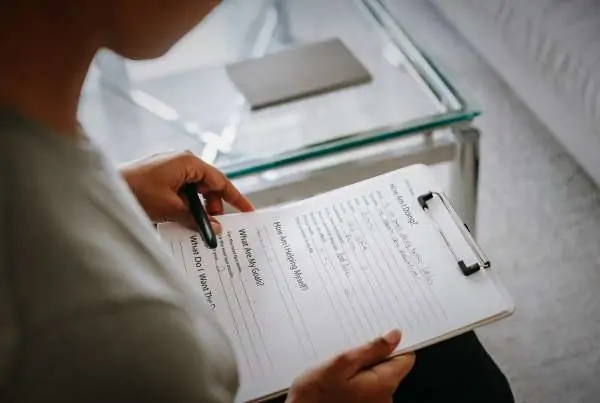Anxiety is a very useful human function. It is useful, that is, if the tools for overcoming anxiety are being used in the way that nature intended. The feeling of anxiety is actually the human flight-or-fight response to a dangerous situation. This survival response helps us to run quickly away from a predator, or to stand our ground and call upon superhuman strength to ward off an attacker. It is the body’s way of getting us geared up for action.
The problem with anxiety arises when our readiness for survival action is cued up, but there is no actual imminent danger. These leaves all of those pent-up levels of fight-or-flight hormone with no opportunity to be expended. Our bodies are not designed to be in a constant state of such alertness. Thus, when there is actually no physical danger, the result of staying so keyed up can mean development of a mental disorder.
Sources of Stress, Anxiety and Fears
There are always things that people can find to be anxious about. For teenagers, those common anxieties often include worries about school grades, worries about peer relationships, and worries about making a college or career choice after graduation. During this COVID-19 pandemic, these types of worries have intensified.
The ability to successfully complete school, at all, may be uncertain. Relationships have almost exclusively been moved to digital formats, which can make it harder to communicate in a way that produces desired results. College and career plans are up in the air, as society waits on how to operate in the months and years ahead.
Added to all of this is the worry that friends and family may become infected by the virus. Something that all of these anxieties have in common is that they are focused on an event that may – or may not – happen in the future. For example:
-
- You may have trouble completing school, or you may end up passing your classes with high scores.
- Your relationships may suffer during social distancing, but you may also find that your friends like your digital interactions.
- You may not be able to enter college or start that job you were planning for, or you may end up having an ideal job fall into your lap.
- You and your family may or may not become ill from the virus.
Anxiety is a biological-based attempt at fortune telling. True to the flight-or-fight response, anxiety is preparing us for a perceived danger which it thinks might be about to occur. This danger may be real, or it may be a figment of our imagination.
Once something has actually happened – or not happened – anxiety disappears. The prediction of danger is no longer necessary in the face of factual occurrence, and anxiety fades to the background once the event has come to pass.
Tips for Overcoming Anxiety
Instead of waiting for events to actually play out, you can get a head start on overcoming anxiety by using some simple coping techniques. These techniques involve taking control of your thought process and letting your body know that it is fine to just chill out. Calming your fight-or-fight response in this way can actually help you to make better decisions toward creating a better future scenario than the one that is feared.
Shift Unhealthy Thinking Patterns
Since anxiety is rooted in worries about the future, thinking more about the actual present can be the remedy. When anxiety strikes, try taking a few minutes to consider the details of your current situation. If you are here reading this, chances are you’re not in any immediate danger of losing anything essential.
You are still enrolled in school, and your friends have not ghosted you. You are not currently hospitalized with the virus. Focusing on the reality of your experience in the moment can help to quiet the “what if” scenarios that an anxious mind can surface.
Talk It Out (With Yourself)
While there are jokes made about people who talk to themselves, the fact is that we all do it, all the time. The conversations that we have with ourselves within our brains is how we make decisions about navigating the world. The mental voice of anxiety can be loud, persistent and obnoxious. Taking charge of that nagging voice through asserting your own rational voice can help.
Try giving your anxiety a silly name. Then, as a controlled and mature adult, talk back to your anxiety as though it is a whiny, bratty child. As the mature voice, you know that this current situation won’t last forever, and that there are as many opportunities for good things to happen in the future as there are bad.
Indulge in Some Old-Fashioned Fun
Sometimes, your only chance for overcoming anxiety is to quiet your mind for awhile. When your mental health testing and self-talk therapies aren’t doing the trick, you can drown out fears and worries with a little indulgence in distraction by:
-
- Playing your favorite video game.
- Watching your favorite on-demand show.
- Going outside for some exercise.
- Focusing on some other activity that brings you pleasure.
While this won’t fix the problem of anxiety permanently, it will give you a mental break. Giving ourselves mental breaks are a good way to come back with renewed determination to subdue the anxiety monster.
Practice Relaxation Strategies
Because anxiety is connected to our physical response to danger, it can also be tackled from the outside. Using techniques to relax your muscle tension and heart rate, increased by your flight-or-fight response, can actually trick your mind into calming down. Try to help your body relax by taking a hot bath or shower, practicing some yoga and meditation, or listening to music.
If You Need Help, Don’t Be Afraid to Ask
If your best efforts at getting a handle on overcoming anxiety aren’t working, help is always available. Mental health providers are increasingly offering telehealth services. Finding a professional to talk with about overcoming anxiety can lead to the development of new skills and perspectives, and can help you to keep your cool during these challenging times.









